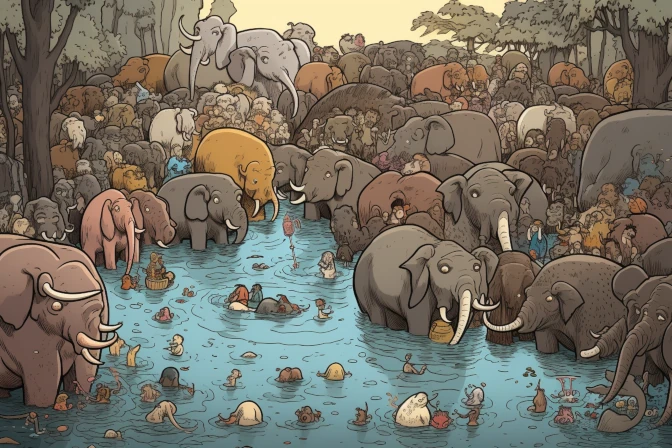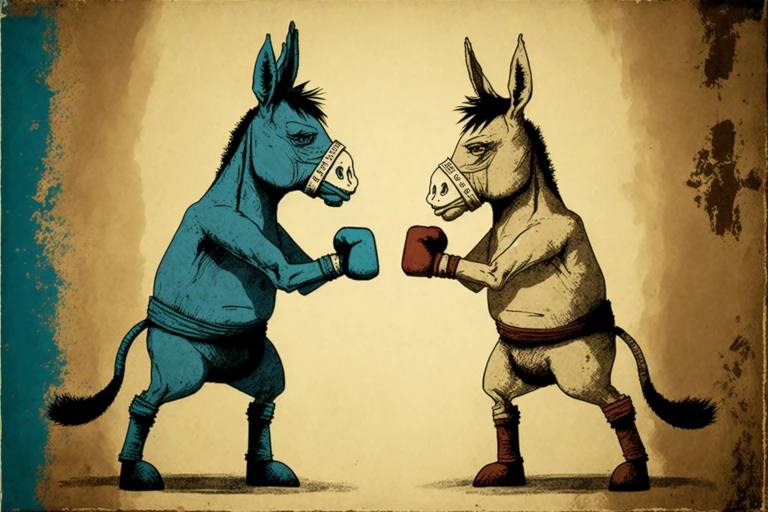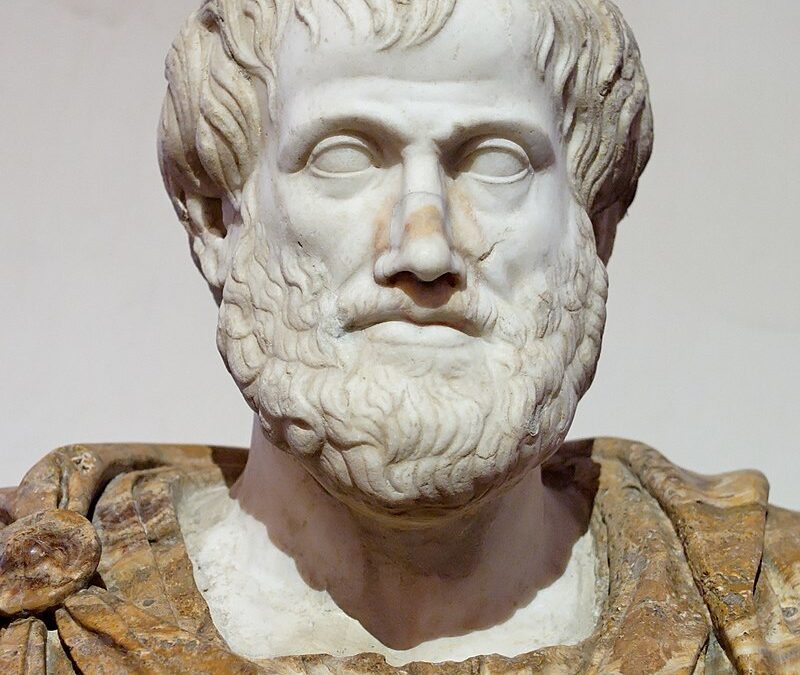I wrote this essay about why we should trust the experts at the beginning of the pandemic. It has missed its relevancy window to be published so it will remain here in the archives. Although the example it builds upon was topical, the point that we should Trust the Experts remains.
Between the COVID-19 pandemic and the spring rains I have recently had an inordinate amount of free time on my hands. While this should be an opportune time to spend completing various projects that, in normal times, I complain about not having the time to do, instead I have bounced from one form of distraction to another. Lurking around internet message boards has proven to be a particularly effective method of disposing of perfectly good time. This is especially entertaining during our current global crisis as everyone has an opinion about the virus and internet message boards function as soapboxes for the public to persuade the world to their views.
Lacking any proper social interaction, these technologically-mediated discussions provide a glimpse into how people are handling our current crisis. It doesn’t look good. If I didn’t know better, I would suspect that this coronavirus causes some form of brain damage even to those who don’t contract the disease. I do not participate in the more mainstream social media sites—Facebook, Twitter, etc.—but I have no doubt that these platforms only magnify the insanity I have witnessed on the old school forums.
Practically everyone on these message boards argues with the confidence of an expert when formulating opinions regarding complex phenomena. Despite taking a couple of biology courses in high school and college and understanding the basic mechanics of how a virus functions, I certainly couldn’t make predictions about any particular virus. If I didn’t know better, I would have thought that internet message boards are populated largely by epidemiologists and other experts on infectious diseases. These posters cite all sorts of studies and statistics to back up one conclusion or another as parties indefinitely argue past one another. It makes me wonder how such people find the time to become experts in this complicated niche field.
The internet provides posters with a seemingly infinite number of sources to back up one claim or another. Embedding multitudinous links to various statistics within a post has the effect of bolstering a poster’s ethos even when such data are misinterpreted, out of context, or just flat out untrue. In the digital world, where one can find a citation for practically any claim, crackpot theories such as the earth being flat have proliferated. Of course, the most persuasive message board posters cite actual research.
What remains questionable is the value of these citations. In the 1980s Jean Baudrillard asserted that technology and the enlarged media ecosystem has led to a situation “where there is more and more information, and less and less meaning.”i While I do not wholly endorse Baudrillard’s postmodern ideas, I believe that this specific idea is worth further examination. Today overabundant information has proliferated on the internet with truth lost in the haze of data. When Baudrillard initially posited the idea that more information leads to less meaning, it certainly must have sounded like a paradox. Even in the early years of the internet such a statement would have sounded nonsensical. The internet promised to eliminate misinformation by providing individuals with a resource for unveiling the truth. That it could do the opposite must have seemed counter-intuitive.
Internet message boards and other forms of social media demonstrate how this process of turning good data into misinformation occurs. One trend among message board posters is that they tend to distrust prefabricated opinions. As we are often taught in college when constructing an argumentative essay, it is better to cite data directly to formulate an argument than to parrot another person’s interpretation of the data. Following this logic, it is better to try and make claims about the coronavirus based on an individual assessment of data than appealing to the authority of someone else. For example, it may be argued that the virus originated at the Wuhan Institute of Virology despite experts finding such claims dissausive. As message board posters are keen to point out to one another, an appeal to authority is a fallacy.
An appeal to authority is just what it sounds like. It is an argument that leans on the credibility of another rather than going through the tedious process of providing direct evidence to back up a claim. In An Essay Concerning Human Understanding, John Locke described such arguments as those that “allege the opinions of men, whose parts, learning, eminency, power, or some other cause has gained a name, and settled their reputation in the common esteem with some kind of authority.”ii This seems to assert that all appeals to authority should be verboten in respectable argumentation and many scholars and internet forum posters agree. Many, including myself, believe that an appeal to authority is only a fallacy when applied incorrectly. It all depends on the circumstances.
The most fallacious example of an appeal to authority is when an argument cites a figure who is an authority in a different manner or domain than the topic at hand. For example, due to his wealth and technical prowess, Bill Gates occupies an elevated status in the social hierarchy. He participates in the global fight against viruses, including the current novel coronavirus. He even reads the technical literature. However, Bill Gates is not an expert in this field and should not be treated as one. While it may be good that he has taken it upon himself to educate the public about the pandemic, we should put our faith in the experts he cites rather than his own expertise. Likewise, since the President commands a high office it could be argued that he has a responsibility to educate the public about our current state of affairs, but this dialogue ought to be informed by experts rather than his own intuition. All too often expertise in one domain can be confused for expertise in another. You wouldn’t (or shouldn’t) trust your podiatrist to perform open heart surgery.
Another circumstance where an appeal to authority is fallacious is when an actual expert in a field relies on the authority of another. If two expert epidemiologists disagree about the nature of the virus and one cites Dr. Anthony Fauci’s opinion as evidence, then the argument no longer becomes about the substance of the data but about the opinion of a famous expert. An expert should not rely on an appeal to authority because they should have the knowledge and understanding to accurately interpret and extrapolate the data. The problem occurs when people assume that their expertise extends beyond its boundaries. They attempt to juggle data they cannot properly handle and assert an understanding regarding phenomena they do not fully understand. In such a case it is more fallacious to put an exaggerated faith in one’s own intellect and assume an ability to assess the judgments of experts. If the experts are divided and no consensus arises among them, the most rational course may be to suspend belief or perhaps trust one’s own inductive analysis. If the experts show a near unanimity of opinion, it is more rational to believe in that consensus than to hope to attain mastery over such a complex field. After all, who has time for that?
The idea that we ought to think for ourselves is a very appealing notion that directly caters to our egos. Most people want to believe they can assess the evidence before their eyes. However, we are all mortals and it is impossible for us to become experts of every field. Oftentimes the most rational course one can take is to humbly concede that others know best. The complexities of modern society only function because we depend on the expertise of others. We trust pilots to fly airplanes. We trust the engineer who designed the bridge we drive over each day. We trust stockbrokers to manage our investments. Only by embracing our limitations can we reap the fruits of the modern world.
This insistence on claiming expertise beyond one’s domain did not begin with the coronavirus. One of the most interesting examples that has existed on the internet for years can be found in climate science deniers. Amateur climate science has extended beyond mere internet discourse to bloggers, web domains, and politicians. Of course, many of the counter-arguments to climate science deniers tend to be crafted by individuals who should just appeal to an authority rather than attempt to understand the complexities of the discipline. Oftentimes climate-science deniers, being experts in other complicated fields, overestimate their ability to assess this domain.
All of this is not to say that no one should have an opinion outside their domain of expertise. Appealing to authority makes sense for subjects that are highly complex where only experts truly understand the many nuances and variables that must be accounted for. Epidemiology and climate science are these types of subjects. It’s especially important that we defer to experts in these fields because our very lives depend on it. It is one thing to argue about the existential nature of man, but when it comes to existential threats, it would behoove us to trust the experts. Otherwise, we contribute nothing but noise that further obfuscates the truth.
i Jean Baudrillard. Simulacra and Simulation. (Ann Arbor: University of Michigan Press, 1981), 79.
ii John Locke, An Essay Concerning Human Understanding, in Great Books of the Western World, ed. Robert Maynard Hutchins, (Chicago: Encyclopædia Britannica, Inc., 1990), 379.





